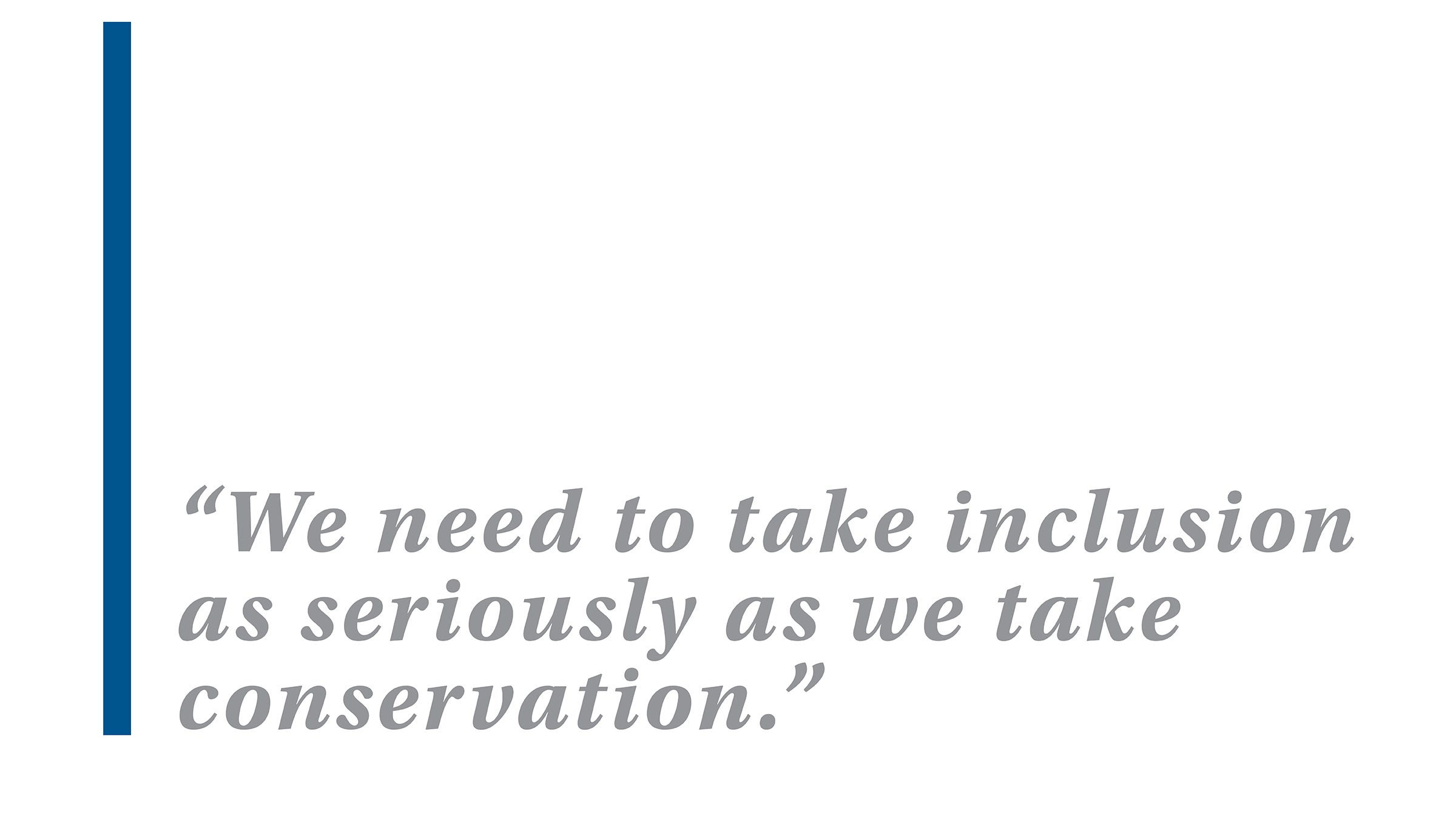Leave No Trauma

There was a time when being considerate on the trail simply meant stepping aside to let uphill hikers pass, so as not to add to their struggle. But when hikers have fears about racism and personal safety, standing aside rather than making meaningful changes is a gross failure to the entire trail community. So why does it keep happening?
To be BIPOC (Black, Indigenous, and people of color) is to be on a perpetual climb toward equity and inclusion where the summit never seems to get any closer. That’s as true in the outdoors as it is in the workplace or on the streets.
But instead of helping these fellow travelers, too many members of the outdoor community dismiss our complaints with lines like, “nature doesn’t see color.” Soon society moves on, the outdoor community follows, and nothing ever changes.
Aggression towards BIPOC hikers on and off the trail occurs far too frequently to dismiss. Have you ever had to leave a campground in the middle of the night because of a threat from neighbors who let you know they had guns with them and told you to “watch out because these are the times of Trump?” I have. Have you been singled out to produce proof you paid your park entrance fee? That happened to me, a brown Mexican-American woman, too.
Listen to BIPOC hikers, and you’ll realize that these things happen daily. And if it feels uncomfortable to acknowledge and listen to other people’s histories, ask yourself: How much more uncomfortable must it have been for us to live them? When you think about it that way, the wilderness no longer feels like an escape so much as a venue change.
Even Leave No Trace rules—which guide us to minimize our impacts on the trail and our fellow hikers—can be weaponized against BIPOC hikers. You might think I’m a natural ally of BIPOC folks on the trail, but I’m guilty of being an aggressor, too: I developed an ego around my own relationship with nature and interpreted the rules to prioritize the land itself over the people who use and might one day help steward it.
I’ve felt my blood boil as a hiker dropped an orange peel onto the native vegetation. I’ve scowled at visitors who shout over loud music I already dislike. Much of the antagonism experienced by BIPOC hikers on the trail comes disguised as a good intention or a conservation effort, and it can have serious repercussions: What if my automatic eye-roll left someone feeling judged and unwelcome? What if my split-second reaction was enough to turn a fellow citizen, who has an equal right to share the trail, off to hiking? Shouldn’t I find a better way?
We need to take inclusion as seriously as we take conservation. This is precisely where we’ve failed our BIPOC hiking communities time and again: From the moment we’re introduced to the outdoors via any conservation or recreation organization and begin to learn the “how-tos,” inclusion moves into the background. But the outdoors isn’t immune from the problems our society has as a whole. The weight of historical barriers that minorities have carried for centuries is not separate from the lands we all share, the lands it happened on.
Imagine, for example, how many devastating wildfires could’ve been prevented in California in the past century if white conservationists had tried to learn from the Indigenous peoples who had been practicing prescribed burns on the land for millennia, instead of helping to dispossess them of those lands and dismiss their knowledge.
But while Leave No Trace has its roots in protecting the land, it also provides an ethical framework most of us agree on, which can help us create a more inclusive outdoors. The seventh principle of Leave No Trace is “be considerate of other visitors.” I think that we need to come to a fuller understanding of what means to “be considerate.”
It’s everyone’s responsibility to uncover the layers of neglected history and amplify the voices that have gone unheard and underrepresented in the outdoors. By looking at human history alongside the natural one, we can minimize our negative impacts on each other, as well as the land, and begin the work of dismantling the oppression BIPOC people have internalized at the individual level. That means choosing empathy over anger, inclusion over ego, and taking great care that we don’t let our “automatic” reactions to minor LNT transgressions chase others off the trail for good. Yes, we’ll have to offer to pack out the occasional orange peel.
If we sincerely care for the land, we need to include and prioritize everybody who uses it or might want to. “We’re all better people when we’ve had some connection to nature,” Dana Watts, executive director of Leave No Trace, reminded me recently. It’s in the best interest of our shared public lands, and our world, that we ensure everyone feels ownership, safety, and belonging wherever they put their feet.
Internalized racism, patriarchy, and white supremacy do not and will not disappear at the trailhead. We often hear that nature is colorblind, but nature isn’t the problem: We are.
Gabaccia Moreno is a first-generation Mexican-American, Leave No Trace member, outdoor educator, and storyteller.